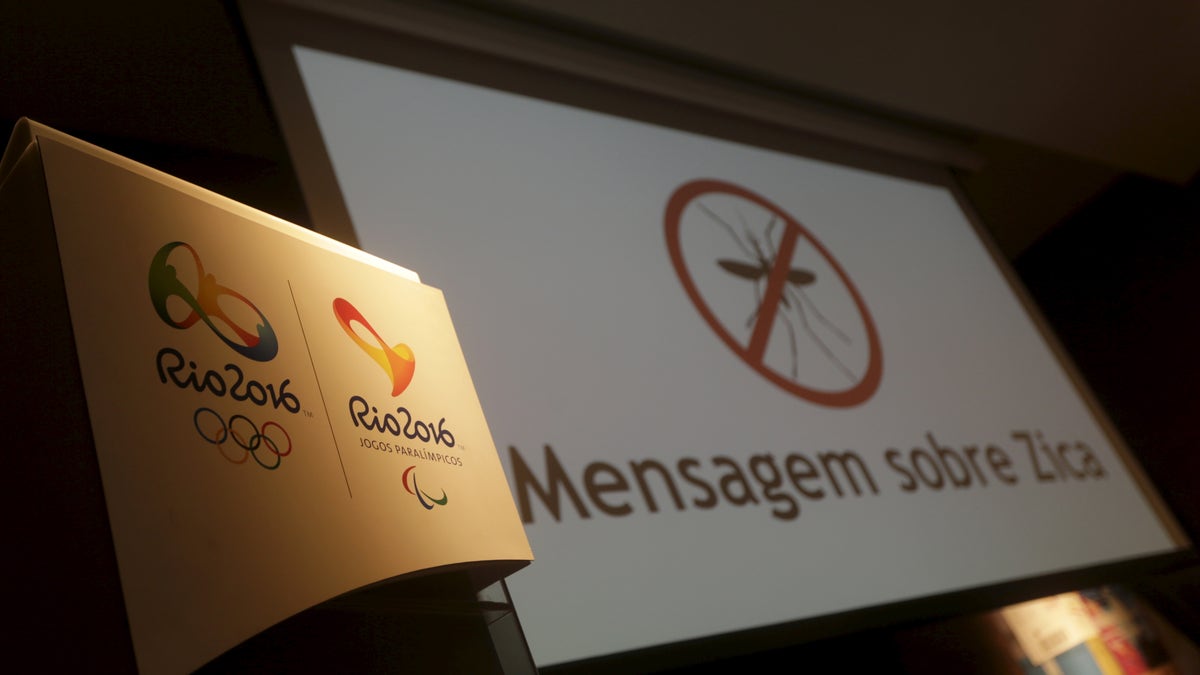
The logos of the Rio 2016 Olympic Games and Rio 2016 Paralympic Games are pictured next to a message on a screen that reads "Message about Zika" during a media briefing in Rio de Janeiro, Brazil, February 2, 2016. (REUTERS/Ricardo Moraes)
Russia is banned from the Paralympic Games as punishment for a state-backed doping program, after losing an appeal at sport's highest court.
The Court of Arbitration for Sport announced its urgent verdict Tuesday to dismiss the Russian Paralympic Committee's appeal against exclusion from the Sept. 7-18 games in Rio de Janeiro. A hearing was held in Rio on Monday.
The court said its judges ruled that the International Paralympic Committee "did not violate any procedural rule" in banning the Russian team two weeks ago.
"(The) decision to ban the (Russian team) was made in accordance with the IPC Rules and was proportionate in the circumstances," the court said in a statement.
An appeal by Russia's Paralympic committee to Switzerland's federal court is possible though unlikely before the games open, Alexei Karpenko, an attorney representing the Russian athletes, said in televised remarks.
The Swiss supreme court could intervene if the legal process was abused but not judge the merits of the evidence -- which the CAS panel was satisfied had proven that Russian authorities organized cheating.
The Russian appeal "did not file any evidence contradicting the facts on which the IPC decision was based," the CAS panel said.
The world Paralympic body used evidence from a World Anti-Doping Agency inquiry into a Russian state-orchestrated program of doping and cover-ups which ran from 2011 to 2015.
Russian authorities also corrupted results at the 2014 Sochi Winter Games and Winter Paralympics by swapping tainted doping samples for clean ones at the official WADA-accredited laboratory, the inquiry said.
The IPC said in Rio two weeks ago it had evidence of manipulated doping tests relating to 44 Russian athletes, including 27 from competitors in eight sports that are part of the Paralympic program.
Then, IPC President Philip Craven said of Russia that: "Their medals over morals mentality disgusts me."
On Tuesday, Craven said the ruling from a court based in the Olympic home city of Lausanne, Switzerland, was a "sad day for the Paralympic Movement, but we hope also a new beginning."
"Today's decision underlines our strong belief that doping has absolutely no place in Paralympic sport, and further improves our ability to ensure fair competition and a level playing field for all Para athletes around the world," Craven said in a statement.
Still, it was "not a day for celebration and we have enormous sympathy for the Russian athletes who will now miss out on the Rio 2016 Paralympic Games," the British official said.
Craven is also a member of the International Olympic Committee which declined to use similar evidence from WADA investigator Richard McLaren's report to take the toughest sanction against Russia for the Rio Olympics which ended Sunday.
Instead, the IOC asked individual sports governing bodies to decide if Russian teams and athletes could compete. Russia's weightlifting team was banned and only one track and field athlete was ruled eligible.
Russia ended the Rio Olympics in fourth place in the medal table. Its athletes won 56 medals, including 19 gold.
With Russia excluded from the Paralympics, the IPC said it will now "redistribute the 267 slots that had been secured by Russian athletes to compete."